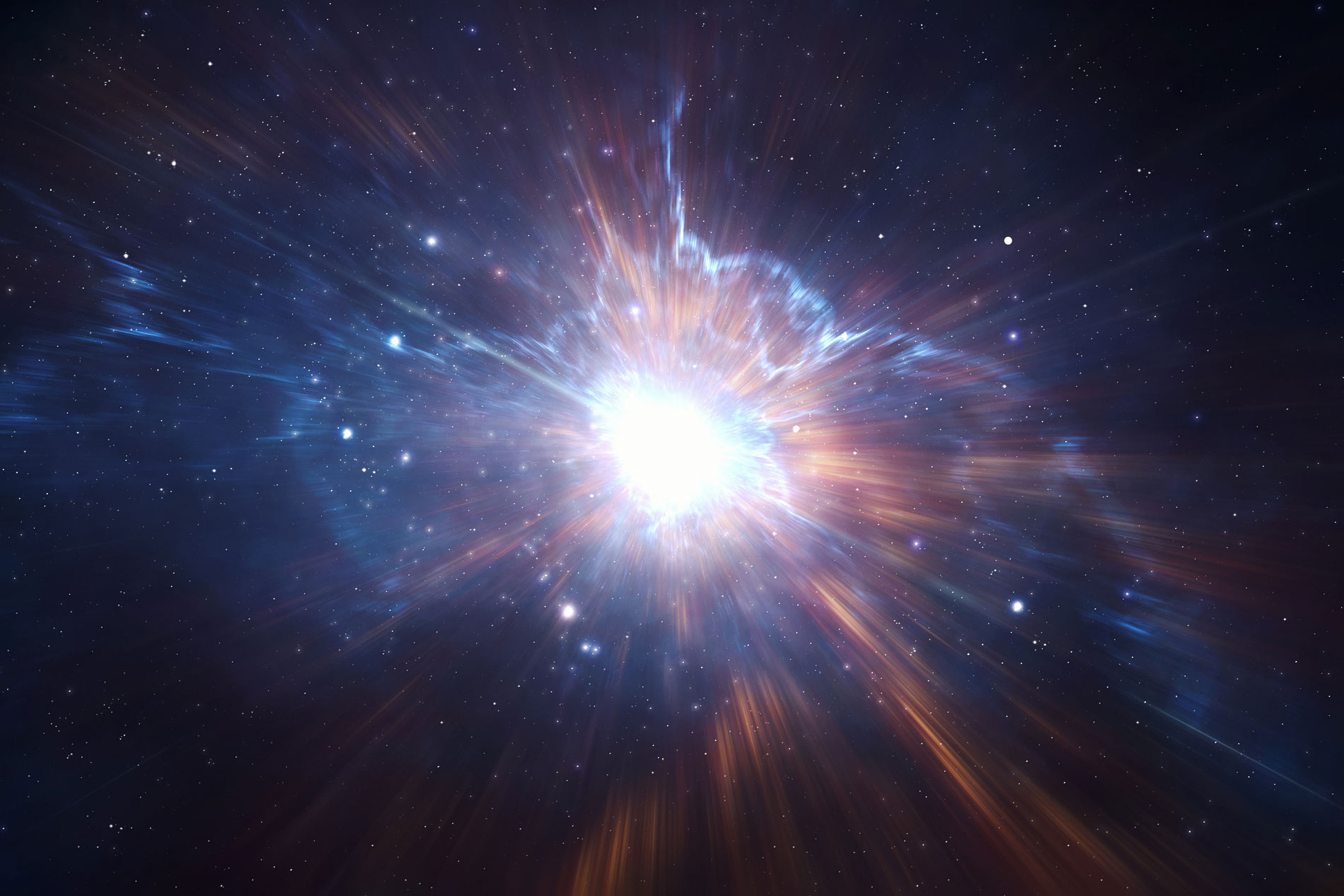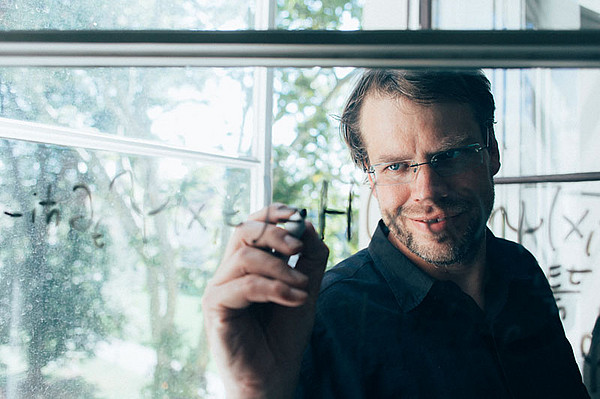Die Weiten des Universums sind für uns Menschen schwer fassbar und faszinierend zugleich. Immer wieder tauchen Begriffe wie Schwarze Löcher oder Dunkle Materie in Science-Fiction-Filmen auf. Dunkle Materie ist ein Sammelbegriff für ein Phänomen fehlender gravitativer Masse. „Sie wird sichtbar sowohl in den Bewegungen von Sternen in unserer Nachbarschaft als auch in den Strukturen der kosmischen Hintergrundstrahlung am Horizont des beobachtbaren Universums“, weiß der Physiker Axel Maas. In einem vom FWF - Österreichischen Wissenschaftsfonds finanzierten Projekt nimmt sich nun die Forschungsgruppe STRONG-DM dem Thema an.
Die wahrscheinlichste Vermutung ist, dass Dunkle Materie eine Form neuer Teilchen darstellt, deren weitere mikrophysikalische Eigenschaften weitgehend unbekannt sind. Ähnlich wie Neutronen, die durch die starke Kraft aus Quarks und Gluonen gebunden sind, könnte Dunkle Materie ein ebenso massiver und neutraler Bindungszustand einer neuen starken Kraft sein. „Diese Hypothese hat Auswirkungen auf die kosmische Ursprungsgeschichte. Die Beobachtung dieser Teilchen in Experimenten, wie am CERN oder in Gran Sasso, würde das astrophysikalische Verständnis der Strukturbildung erweitern“, führt Maas aus. „Dunkle Materie könnte in solchen Detektionsexperimenten nachgewiesen werden.“
Die Forschungsgruppe – sie besteht aus PhysikerInnen der Universität Graz und dem Wiener Institut für Hochenergiephysik – beleuchtet unterschiedliche Aspekte dieses Phänomens. Durch die enge Zusammenarbeit kann das Thema in seiner Komplexität erforscht werden. Es wird damit zum ersten Mal möglich sein, stark wechselwirkende Dunkle Materie von ihrer fundamentalen Struktur bis zu ihrer Detektion zu studieren. Bewilligt wurden rund 1,2 Millionen Euro, offizieller Start ist im Mai 2020.
"Was hält unser Universum zusammen?" - Sedcard von Axel Maas

